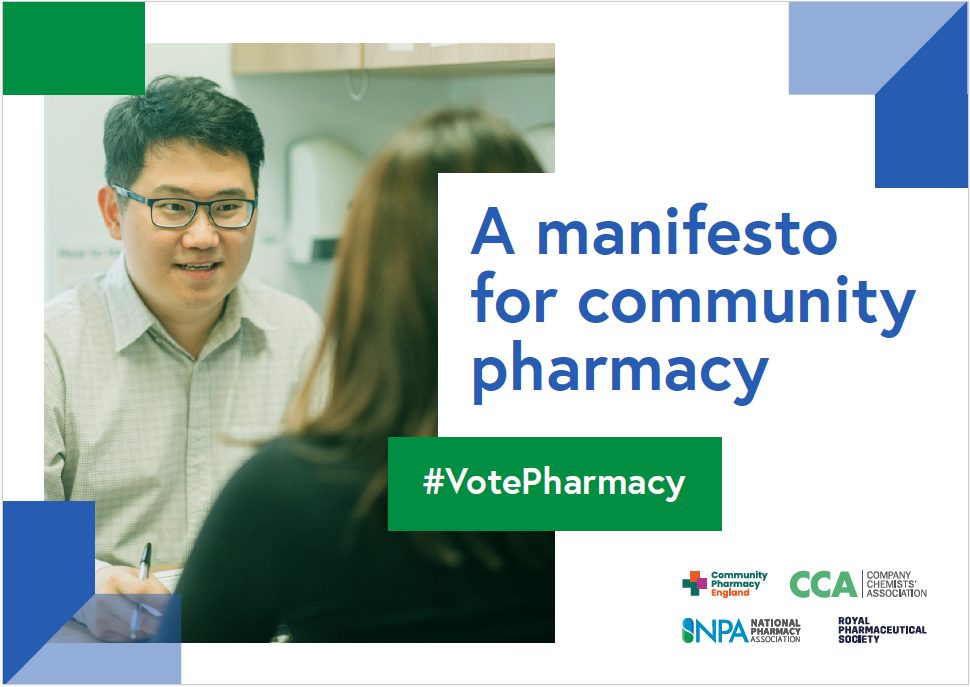Service case study: Care Plan service demonstrates significant clinical & economic benefits
Published on: 12th April 2018 | Updated on: 28th March 2022
A research paper on the Community Pharmacy Future Pharmacy Care Plan service has been published in Research in Social & Administrative Pharmacy. The paper details the evaluation and cost-effectiveness of the service and concludes that the service increases levels of patient activation, self-reported adherence to their medication and self-reported quality of life. The study and its results show that this new patient-centred model of care, is cost-effective, empowers patients to manage their own condition, and supports the NHS self-care agenda.
What did the service involve?
The service was a demonstrator pilot which took place in community pharmacies in West Yorkshire, aimed at patients with long-term conditions. As part of the service, each eligible patient had one-to-one discussions with a pharmacist to explore and identify personalised health goals and agree on actions. The pharmacist also assessed the patient’s adherence to prescribed medicines and discussed optimisation of the use of their medicines. The service used validated clinical tools to support the provision of care to the patient, such as the Patient Activation Measure (PAM), which assesses the knowledge, skill and confidence a person has in managing their own health and health care.
The service focused on interventions that community pharmacists and their teams can deliver using regular discussions with patients when they are collecting prescribed medication. These include tailored coaching, signposting and self-management guidance aimed at increasing patients’ levels of activation.
What does the evaluation show?
Over a 12-month period, 38 community pharmacies, including independent and supermarket pharmacies, supported 378 patients through the service. 93% of patients who attended the first appointment agreed one or more health goals with the pharmacist and nearly 40% of those patients achieved one or more of them.
Patients enrolled in the service showed an improvement over 12 months in key clinical and process metrics, such as patient activation, adherence, systolic and diastolic blood pressure and quality of life.
The health economic analysis results suggest that the service can be considered to be cost effective. NICE refers to a cost effectiveness threshold value of £20-30k per QALY with an ICER of below £20k being considered value for money; the ICER for the service was estimated to be £8,495 per QALY suggesting that it is a cost-effective solution for the NHS.
Who undertook this research?
The research was conducted by the Community Pharmacy Future group (Boots UK, LloydsPharmacy, Rowlands Pharmacy and Well) and academics from the University of East Anglia. The Pharmacy Care Plan is an evolution of the two successful support services evaluated in 2013/14 that evidenced significant improvements in quality of life and medicines adherence, with health economic benefits.
Further details on the previous research is available at https://communitypharmacyfuture.org/.
Commenting on the publication of the research, Clare Kerr, Head of Healthcare Policy and Strategy for Celesio UK and Vice-Chair of Community Pharmacy England’s Service Development Subcommittee said:
“The design, delivery and evaluation of this service has grown the ever-increasing evidence base for the value of community pharmacy, which was one of the key goals for this project. Either the full-service package, or elements of it, can easily be integrated into wider primary care models, supporting patients with multiple long-term conditions to become more activated and better able to self-care, improving their potential outcomes and reducing the cost of their care to the system”.
Alastair Buxton, Director of NHS Services at Community Pharmacy England said:
“This service has demonstrated the capability of community pharmacy teams to innovate and embrace new ways of working. This evaluation further adds to the evidence base around the use of community pharmacy teams to support people with long-term conditions using validated tools, such as PAM, under a new model of care.
The publication of this research supports Community Pharmacy England’s development proposals for the contractual framework, which we have recently submitted to DHSC and NHS England. A Community Pharmacy Care Plan service sits at the centre of our proposals, which is based on the approach taken in the Community Pharmacy Future II project. This research takes us one step closer to making the proposals set out in the Murray Review and the Community Pharmacy Forward View a reality.”












